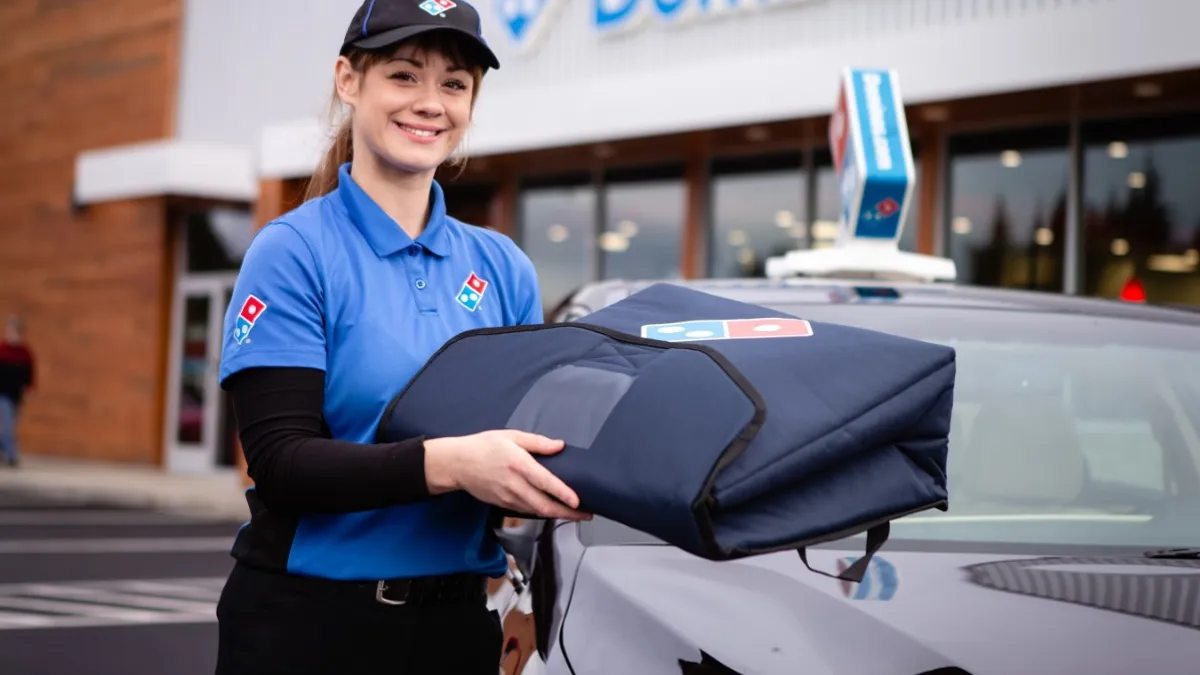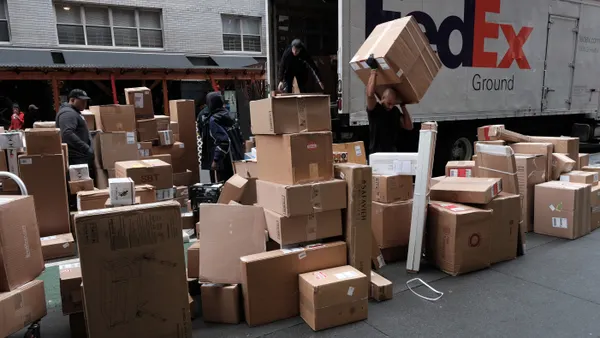Dive Brief:
- Scale and buying power have allowed large companies to keep shelves stocked and stay ahead of shortages better than small businesses, according to recent comments by executives on earnings calls.
- Domino's CEO Rich Allison said in an earnings call last week that smaller, independent restaurants "are less able to buy with the scale and ... lock in pricing as the larger players like we are."
- Executives at Lowe's and Levi Strauss made similar comments in September. Levi Strauss CEO Chip Bergh said the company's size was a "competitive advantage," while Lowe's CFO David Denton said "the scale and breadth of our supply chain" allowed the company to avoid shortages.
Dive Insight:
When it comes to navigating shortages during the pandemic, deep pockets and strong supplier relationships give big businesses an advantage.
"Larger companies, simply based on their larger size and the associated resources and buffers, have generally had an easier time to navigate the pandemic than smaller firms," said Tobias Schoenherr, a professor of purchasing and supply chain management at Michigan State University.
Buying power gives bigger businesses the upper-hand when it comes to negotiating with suppliers, allowing them to lock in long-term contracts at more cost-effective prices. Levi's negotiated most of its product costs through the first-half of 2022 "at very low single-digit inflation," according to Bergh, and the retailer has avoided some of the biggest impacts from rising cost of cotton as a result.
Suppliers tend to give large companies "preferential treatment," said Schoenherr, because of the "clout associated with their larger spend volumes."
Levi Strauss' size and the volume of its orders, for example, helped create strong relationships with suppliers. "Our vendors can think about this demand being there for a long, long time," said Denton.
Larger entities are also better equipped to keep up with supplier cost increases when they do happen. Domino's Allison said rising commodity costs are part of the reason why independent shops are less able to buy with scale.
"I suspect that there is a lot of pressure on the [profit and loss] among some of the independents and smaller regionals out there," Allison said in the earnings call.
Still, that doesn't mean small businesses haven't been able to adapt. Smaller firms were quick to innovate and transform their business models when the pandemic first hit, like when distilleries and breweries changed gears to begin producing hand sanitizer.
That entrepreneurial spirit "can be a significant advantage for smaller firms to be more agile and responsive, and to make decisions quickly to pivot into new directions," Schoenherr said.
This story was first published in our Procurement Weekly newsletter. Sign up here.














